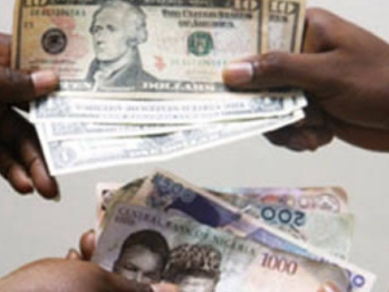Naira recovering against dollar? Here’s all you need to know

Photo credit: google
The Nigerian naira, long plagued by severe devaluation, has recently shown signs of recovery against the US dollar. After months of intense pressure and speculation, these developments offer a glimmer of hope for Africa’s largest economy. But is this recovery sustainable? Here’s a deep dive into what’s happening, why it matters, and what lies ahead for Nigeria’s currency.
Unmasking what’s behind the recent Naira recovery
READ ALSO:Naira does not mean never allow Igbo rule again
Why Davido is wrong for saying Nigeria lacks good leaders
John Mahama: Five things to know about Ghana’s president-elect
Ranking the best Defensive Midfielders in 2024/25 EPL Campaign
Forex Market Reforms
The Central Bank of Nigeria (CBN) has implemented critical reforms to enhance transparency in the foreign exchange market. According to Punch ng, “the naira appreciated by N137.69 against the United States dollar within a week, following the introduction of the Central Bank of Nigeria’s new foreign exchange platform.”
This pivotal step is as a result of the introduction of an Electronic Forex Matching System, allowing for more efficient trading and reducing opportunities for speculation. This has increased investor confidence and helped stabilize the naira in both official and parallel markets.
Eurobond Success
According to Ripples Nigeria, Nigeria’s return to the international capital markets after a two-year absence has provided much-needed foreign exchange inflows. The country raised $2.2 billion in Eurobonds, bolstering dollar liquidity. This move has reduced the pressure on Nigeria’s foreign reserves and provided a buffer to stabilize the naira.
Seasonal Factors and Diaspora Inflows
The festive season typically leads to increased remittances from the Nigerian diaspora, further boosting foreign exchange reserves. Legit.ngLegit.ng reports that remittance flows have been a lifeline for the country’s forex market, particularly in times of reduced oil revenues.
Oil Production and Domestic Refining
Efforts to ramp up crude oil production and refine products locally have also contributed to the naira’s strength. Ripples Nigeria reports that by reducing the importation of refined fuels, the government is lessening the demand for dollars, which has been a significant strain on the currency.
What the Numbers Say?
At the official foreign exchange market, the naira appreciated by ₦15, trading at ₦1,663.40/$ compared to the previous week’s rate of ₦1,678.69/$ according to Ripples Nigeria.
In the parallel market, it gained ₦5, settling at ₦1,730/$, down from ₦1,735/$ a few days prior.
Gains were also recorded against other major currencies, such as the euro and the British pound, indicating a broad-based recovery.
Does This Recovery Matter?
Yes, it does. Naira’s recovery will lead to the following:
Economic Stability
A stable currency is crucial for inflation control. Nigeria has battled high inflation rates fueled by currency depreciation and rising import costs. A stronger naira could ease the burden on households and businesses.
Investor Confidence
For foreign investors, currency stability is a key determinant in their decision-making. The naira’s recovery signals that Nigeria is taking meaningful steps to address its structural economic challenges, potentially attracting much-needed investment.
Debt Management
Nigeria’s dollar-denominated debts have grown substantially in recent years. A stronger naira can reduce the cost of servicing these debts, freeing up resources for domestic development projects.
Are there challenges ahead?
While the recovery is promising, significant challenges may follow suit. Which are
Forex Demand Pressure: Persistent demand for dollars for imports, education, and medical tourism continues to strain the naira.
Speculative Activity: The gap between the official and parallel market rates invites arbitrage, complicating efforts to stabilize the market fully.
Policy Consistency: The long-term success of these reforms will depend on the government’s ability to maintain fiscal discipline and address underlying structural issues, such as diversifying revenue sources beyond oil
At the meantime, experts remain cautiously optimistic. Some predict further gains if current policies are sustained. Financial analyst Bismarck Rewane believes that targeted interventions in key sectors, including oil and agriculture, could support the naira’s full recovery by 2024 as reported byLegit ng.
However, any misstep—such as excessive government borrowing or lax monetary policies—could reverse these gains.
In conclusion,naira’s recent recovery is a step in the right direction, reflecting the benefits of targeted reforms, strategic capital market actions, and improved foreign exchange inflows.
However, sustaining this momentum will require robust policies, structural reforms, and consistent governance. For now, Nigeria can cautiously celebrate this progress while preparing for the challenges that lie ahead.

